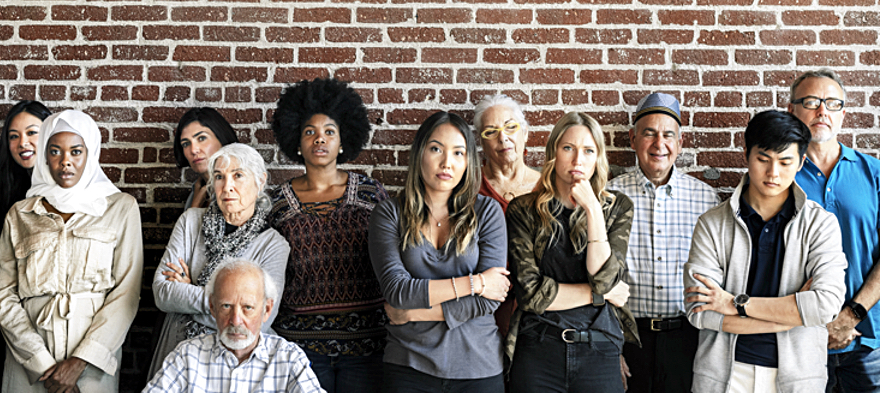
Dec 8, 2021 12:00:00 AM
If I had a nickel for every time a school official uttered the phrase “unprecedented times” in the past year and a half, our schools wouldn’t need the American Rescue Plan. But you know what isn’t unprecedented? Animosity towards those school officials and the systems they represent. And it’s heating up again, just in time for the holidays.
This time, the debate isn’t even over a specific critique of public education; it’s about who should be able to point out the shortcomings of school systems at all.
Does someone really have to be an educator to have an opinion on education? Because if you ask some of the teachers who chimed in, they’ll tell you that it’s classroom experience or bust. “This world has too many armchair quarterbacks,” one teacher argued. “Why not come get your hands dirty before you criticize?” another educator questioned.
And as fallout from this debate continues to occupy my timeline, I’m calling for a ceasefire.
The act of educating young people is a symbiosis between families and schools—a delicate and sometimes complicated dance.
"At the end of the day, schools are tasked with providing a service for students and families, which makes their satisfaction the ultimate charge."
No school leader wants to deal with criticism, obviously, but this arrangement means that dissent should be fair game whenever it does arise.
In other words, if education is a public service, then the public should get a say.
Look, teaching can be a very personally taxing profession. I know how easily a teacher’s identity can become wrapped up in the work they do—it makes any criticism leveled towards teachers, schools, or school systems seem intensely personal. But it doesn’t change the fact that this is gatekeeping dressed as professional martyrdom, and it accomplishes nothing for those of us serious about elevating the profession.
Speaking broadly, teachers unions and other educator-centered organizations have always supported expanding teacher voice in decision-making processes. Yet, when we insist that nobody can have an opinion about education unless they’re willing to “come get their hands dirty” first, we’re guilty of intentionally excluding the same public we claim to serve.
I see this as deeply problematic. If we’re going to pride ourselves in the nobility of our work, then let’s at least act nobly. And let’s do it quickly, because if you haven’t taken a look around, now is a rocky time for public education.
Thanks largely to the pandemic, public school enrollment has dropped at a historic rate while support for school choice is at an all-time high. The result? A political landscape where [pullquote position="right"]families are feeling increasingly empowered by access to new educational options for their children.[/pullquote] For educators, turning a blind eye and a deaf ear to their needs seems irresponsible at best.
Teaching is complex work, to be sure, and those who do it well should be commended. Yet, at the end of the day, our labor force is still one of college-educated, middle-class professionals with vast social privilege. There’s no better way to declare one’s own lack of seriousness than to awfulize the work through a “woe-is-me” mentality and gatekeeping shticks like these.
Criticism isn’t fun, but there’s a time and place for everything. Right now, we should be listening.
Garris Stroud is an award-winning educator and writer from Greenville, Kentucky whose advocacy and scholarship have been recognized by USA Today, U.S. News and World Report, Education Post, The Louisville Courier-Journal, and The Lexington Herald-Leader. He served as a Hope Street Group Kentucky State Teacher Fellow from 2017-2019 and became chair of the organization's editorial board in 2018. Stroud received bachelor's and master's degrees in education from Murray State University and is currently a doctoral student in educational leadership at the University of the Cumberlands, located in the heart of Kentucky's Appalachian region. Read more about his work on the Kentucky School Talk and Rural Ed Voices blogs.
The story you tell yourself about your own math ability tends to become true. This isn’t some Oprah aphorism about attracting what you want from the universe. Well, I guess it kind of is, but...
If you have a child with disabilities, you’re not alone: According to the latest data, over 7 million American schoolchildren — 14% of all students ages 3-21 — are classified as eligible for special...
The fight for educational equity has never been just about schools. The real North Star for this work is providing opportunities for each child to thrive into adulthood. This means that our advocacy...
Your donations support the voices who challenge decision makers to provide the learning opportunities all children need to thrive.
Ed Post is the flagship website platform of brightbeam, a 501(c3) network of education activists and influencers demanding a better education and a brighter future for every child.
© 2020–2024 brightbeam. All rights reserved.
Leave a Comment